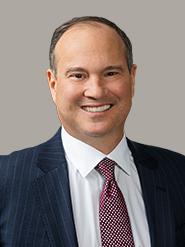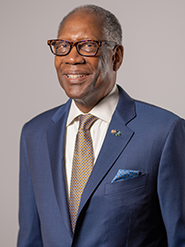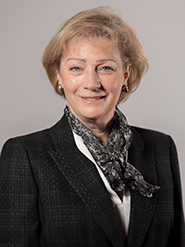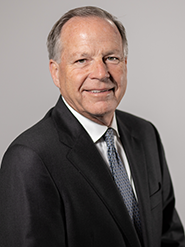Corporate Governance Guidelines of KBR, Inc.
(as of February 20, 2025)
The Board of Directors (the “Board”) of KBR, Inc. (the “Corporation”) believes that the primary responsibility of the Directors of the Corporation is to provide effective governance over the Corporation’s affairs for the benefit of its stockholders.
That responsibility includes:
- Evaluating the performance of the Chief Executive Officer and taking appropriate action, including removal, when warranted;
- Reviewing, by its independent directors, the Chief Executive Officer’s compensation for the next year based upon the determination of the Compensation Committee;
- Selecting, evaluating and fixing the compensation of executive management of the Corporation and establishing policies regarding the compensation and benefits for the Corporation and other members of management;
- Reviewing succession plans and management development programs for members of executive management;
- Reviewing and approving periodically long-term strategic and business plans and monitoring corporate performance against such plans;
- Adopting policies of corporate conduct, including compliance with applicable laws and regulations and maintenance of accounting, financial, disclosure and other controls, and reviewing the adequacy of compliance systems and controls;
- Evaluating annually the overall effectiveness of the Board;
- Evaluating the Corporation’s overall risk profile and ensuring that a robust process of oversight of such risks is maintained by the Board and its committees, and by executive management; and
- Reviewing matters of corporate governance.
The Board has adopted these Corporate Governance Guidelines (these “Guidelines”) to assist it in the exercise of its responsibilities. These Guidelines are reviewed periodically and revised as appropriate to reflect the dynamic and evolving processes relating to the operation of the Board.

Stuart J. B. Bradie
Stuart J. B. Bradie serves as KBR’s President and Chief Executive Officer. He assumed this role when he joined KBR on June 2, 2014. With over 30 years of industry experience, Mr. Bradie leads KBR from its global headquarters in Houston, Texas and UK office in Leatherhead.
Mr. Bradie joined KBR from WorleyParsons Ltd., where he held the position of Group Managing Director – Operations and Delivery. In that role, he led the group's global operations across more than 40 countries in the hydrocarbons, mining, chemicals, power and infrastructure sectors. Mr. Bradie joined WorleyParsons in 2001 and was previously Managing Director across Europe, Africa, Asia and the Middle East. Prior to joining WorleyParsons, Mr. Bradie held Managing Director and Country Manager roles with PT Kvaerner Indonesia and Kvaerner Philippines.
Mr. Bradie has a Bachelor of Science degree in Mechanical Engineering from Aberdeen University and a Master of Business Administration degree from the Edinburgh Business School, Heriot Watt University.
Mr. Bradie joined the KBR Board in July 2014. In May 2023, Mr. Bradie joined the board of Rolls-Royce Holdings plc and serves as a member of the Nominations, Culture & Governance Committee and Safety, Energy Transition & Tech Committee.

Joseph Dominguez
Joseph Dominguez serves as the President and Chief Executive Officer of Constellation Energy Corp, a role he assumed in February 2022 when the company spun off from Exelon Corporation. Prior to joining Constellation, he served as the Chief Executive Officer of Commonwealth Edison Company (ComEd), a subsidiary of Exelon, from 2018 through 2021. Mr. Dominguez served as Executive Vice President of Governmental and Regulatory Affairs and Public Policy for Exelon from 2012 through 2018. Prior to joining Exelon, he was a partner in the law firm of White and Williams, LLP. Mr. Dominguez was also an assistant U.S. Attorney for the Eastern District of Pennsylvania.
Mr. Dominguez holds a Bachelor of Science degree in Mechanical Engineering from New Jersey Institute of Technology and a Doctor of Jurisprudence from Rutgers University School of Law.
Mr. Dominguez is a director of Constellation Energy Corp. He also serves on the boards of Electric Power Research Institute, Hispanics in Energy, Institute of Nuclear Power Operations, and Nuclear Energy Institute.
Mr. Dominguez joined the KBR Board in May 2024. He is a member of the Compensation Committee and Cybersecurity Committee.

Lynn A. Dugle
Lynn A. Dugle served as the Chairman, President and Chief Executive Officer at Engility Holdings Inc. before leading the sale of the company to Science Applications International Corporation in 2019. Prior to joining Engility in 2016, she spent more than a decade in senior management positions at Raytheon Company, including serving as the Vice President, Engineering, Technology and Quality for the former Raytheon Network Centric Systems, before retiring from the company in March 2015 as its Corporate Vice President and President of Intelligence, Information and Services. While at Raytheon, Ms. Dugle led the company’s acquisition of more than a dozen cyber-related companies. Before joining Raytheon in April 2004, she held several officer-level positions with ADC Telecommunications, Inc., including General Manager, Cable Systems Division, culminating with Vice President and General Manager, Product, Systems Software Division. Ms. Dugle began her career at Texas Instruments, Inc. as a manufacturing engineer and rose to Vice President, Support Engineering and Quality for the Defense Systems and Electronics Group. Ms. Dugle has more than 30 years of executive leadership experience in defense, intelligence and high-tech industries.
Ms. Dugle holds a Bachelor of Arts degree in Spanish and a Bachelor of Science degree in Technical Management from Purdue University. She subsequently graduated with a Master of Business Administration degree from The University of Texas at Dallas.
Ms. Dugle is a director of EOG Resources, Inc., Micron Technology, Inc. where she serves as a member of the Audit Committee and Security Committee, and TE Connectivity Ltd. where she serves as a member of the Audit Committee. Ms. Dugle also serves on the board of ZOE Empowers. Ms. Dugle previously served on the boards of Avantus Federal, The B2B Project, The Board on Army Research and Development of the National Academy of Sciences, Intelligence and National Security Alliance (INSA), and State Street Corporation. Ms. Dugle also served as an advisor partner of First Light Acquisition Group, Inc.
Ms. Dugle joined the KBR Board in February 2020. She is the Chair of the Nominating and Corporate Governance Committee and a member of the Compensation Committee and Cybersecurity Committee.

Nchacha E. Etta
Nchacha E. Etta is executive vice president and chief financial officer of Omnicell, Inc., a position he has held since June 1, 2023. Mr. Etta’s breadth of finance and accounting experience stems from leading and working in global finance organizations across the healthcare and consumer products industries for more than 20 years. Prior to joining Omnicell, Mr. Etta served as senior vice president and chief financial officer for Essilor of America, Inc., a subsidiary of EssilorLuxottica SA. Before that role, Mr. Etta served as the worldwide vice president and chief financial officer of Johnson & Johnson Vision from 2015 to 2019, and for the previous nine years, he held various senior finance roles at The Coca-Cola Company. Earlier in his career, Mr. Etta worked at Microsoft Corporation, Eli Lilly & Company, and The Carlyle Group. Mr. Etta began his career as a Senior Accountant at Orano Cycle, formerly COGEMA (Compagnie générale des matières nucléaires) and Areva NC.
Mr. Etta holds a Bachelor of Science degree in Accounting from George Mason University and a Master of Business Administration degree in Finance from Howard University.
Mr. Etta formerly served as a member of the Howard University Board of Trustees and Helen Keller International Board of Trustees.
Mr. Etta joined the KBR Board in August 2024. He is a member of the Audit Committee and Sustainability & Corporate Responsibility Committee.

General Lester L. Lyles, USAF (Ret.)
Chair of the Board
Lester L. Lyles, a retired Four-Star General of the U.S. Air Force, has been an independent consultant since 2003. Prior to that time, he served in the U.S. Air Force for over 35 years as: Commander of the Space and Missile Systems Center from 1994 to 1996; Director of the Ballistic Missile Defense Organization from 1996 to 1999; Vice Chief of Staff of the Headquarters of the U.S. Air Force from 1999 to 2000; and Commander of the U.S. Air Force Materiel Command from 2000 to 2003.
General Lyles holds a Bachelor of Science degree in Mechanical Engineering from Howard University in Washington D.C. and a Master of Science degree in Mechanical and Nuclear Engineering from the Air Force Institute of Technology Program from New Mexico State University in Las Cruces. He is a graduate of the Defense Systems Management College, Fort Belvoir, Virginia, the Armed Forces Staff College, Norfolk, Virginia, the National War College, Fort Lesley J. McNair, Washington, D.C., and the National and International Security Management Course at Harvard University, Cambridge, Massachusetts. General Lyles received Honorary Doctor of Laws degrees from New Mexico State University and Urbana University and was inducted into the National Academy of Engineering in 2009.
General Lyles is a director of Frontier Technology Inc. and serves on the JobsOhio Board of Directors. He is also a fellow of the American Institute of Aeronautics and Astronautics, the Chair of the Defense Advisory Committee on Diversity and Inclusion (DACODAI), which reports to the secretary of defense of the U.S., a senior principal advisor to Elara Nova, a space-focused consultancy, a member of the National Air and Space Museum Board, the Chair of the NASA Advisory Council, which reports to the NASA Administrator, the Chair of the National Space Council Users’ Advisory Group (UAG), which reports to the vice president of the U.S., and the Chair of the Board of Trustees of the Universities Space Research Association (USRA). General Lyles previously served as a director of General Dynamics Corporation, retiring in May 2020, and Battelle Memorial Institute, a nonprofit organization, retiring in November 2019. He also served as Chairman of the Board of Directors of the United Services Automobile Association, retiring from this position in August 2019. General Lyles served as a member of the Defense Science Board in the Pentagon, International Security Advisory Board at the U.S. Department of State, and President's Intelligence Advisory Board in the White House. He also served as a director of Precision Castparts Corp. until its acquisition by Berkshire Hathaway in February 2016.
General Lyles joined the KBR Board in November 2007 and assumed the role of non-executive Chair of the Board in May 2019. He is also a member of the Cybersecurity Committee and Nominating and Corporate Governance Committee.

Sir John A. Manzoni KCB
Sir John A. Manzoni KCB is a former British senior civil servant (2014 to 2020) and business executive. He was appointed Knight Commander of the Order of the Bath (KCB) in 2020. Sir John served as Chief Executive of the Major Projects Authority from February 2014 to October 2014. In October 2014, he became the first ever Chief Executive of the UK Civil Service, a role that is the second most senior civil servant, and in August 2015, he added the post of Permanent Secretary for the Cabinet Office. From 2007 to 2012, Sir John served as President and Chief Executive Officer of Talisman Energy Inc., a global oil and gas exploration and production company based in Canada. Prior to that role, Sir John spent almost 25 years at BP plc, one of the world’s leading integrated oil and gas companies. Beginning in 1983, he served in numerous roles across varying functions and operations, including engineering, investor relations, strategy, and mergers and integration. From 2001 to 2002, Sir John served as BP’s Chief Executive of Gas and Power, and from 2002 to 2007, he served as Chief Executive of Refining and Marketing. He also served as a director of BP’s Main Board from 2003 to 2007.
Sir John holds a Bachelor of Science degree in Civil Engineering and a Master of Science degree in Petroleum Engineering from Imperial College London. He also holds a Master of Science degree in Management from Stanford University’s Graduate School of Business and was a Sloan Fellow. Sir John received an Honorary Doctorate from Aberdeen University.
Sir John is Chair elect of Diageo plc where he currently serves as a non-executive director and member of the Audit, Nominations, and Renumeration Committees. In addition, he is Chair of the Board of SSE plc where he also chairs the Nomination Committee and is a member of the Energy Markets Risk Committee, Remuneration Committee, and Safety, Sustainability, Health and Environment Committee. Sir John also serves as Chair of the Board for the Atomic Weapons Establishment (AWE plc), a UK Ministry of Defence facility. He also serves on the Global Leadership Council of the Saïd Business School at the University of Oxford and is a mentor for Chairman Mentors International (CMi). Sir John previously served on the boards of BP plc, Leyshon Energy Ltd, and SABMiller plc. He previously served as an advisory board member for Accenture Energy and the Stanford University Graduate School of Business.
Sir John joined the KBR Board in May 2022. He is a member of the Audit Committee and Sustainability & Corporate Responsibility Committee.

Lt. General Wendy M. Masiello, USAF (Ret.)
Wendy M. Masiello, a retired Three-Star General of the U.S. Air Force, is an independent consultant. Prior to her retirement, General Masiello served as Director of the Defense Contract Management Agency maximizing a $1.4 billion budget to manage and motivate a global workforce of 12,000 to ensure 20,000 contractors delivered on 340,000 Defense and Federal contracts valued at $6 trillion. Responsibilities included accounting and procurement business system approvals, quality compliance, validating production capacity, cybersecurity system implementation and reporting, and putting $500 million per day into economies delivering the spectrum of Defense technologies. During her 36-year career, General Masiello also shaped Air Force contracting policy and its 11,000 persons as Deputy Assistant Secretary (Contracting), Office of the Assistant Secretary of the Air Force for Acquisition, and prior to that led the Air Force’s $65 billion Service Acquisition portfolio as its Program Executive Officer. She also led contracting support for U.S. military forces in Iraq and Afghanistan from July 2005 to January 2006. General Masiello's medals and commendations include the Defense Superior Service Medal, Distinguished Service Medal, and Bronze Star.
General Masiello holds a Bachelor of Business Administration degree in Marketing from Texas Tech University, Master of Science degree in Logistics Management from the Air Force Institute of Technology, and Master of Science degree in National Resource Strategy from the Industrial College of the Armed Forces, Fort McNair, Washington, D.C. General Masiello is also a graduate of Harvard Kennedy School's Senior Managers in Government. She is a 2023 Distinguished Graduate of Texas Tech University's Rawls School of Business, a 2017 Distinguished Alumna of Texas Tech University, and a two-time Executive Mosaic Wash100 Award winner. In March 2024, General Masiello earned her CERT Certificate in Cyber-Risk Oversight from the National Association of Corporate Directors.
Besides KBR, Inc., General Masiello serves as an independent board director for StandardAero, where she serves as a member of its Audit Committee, for EURPAC Service, Inc., where she serves as a member of its Compensation and IT committees, for Tlingit Haida Tribal Business Corporation, and for MRIGlobal, where she serves on its Board of Trustees and Finance and Audit and Compensation and HR committees. Her not-for-profit work includes Board of Directors for the Procurement Round Table and Board of Directors and Executive Committee for the National Board of Rebuilding Together. She advises the Department of Defense as a member of the Acquisition Innovation and Research Center Advisory Panel and U.S. Air Force as a member of the Air Force Studies Board of the National Academy of Sciences. General Masiello previously served as Board Chair for the National Contract Management Association.
General Masiello joined the KBR Board in August 2017. She is the Chair of the Cybersecurity Committee and a member of the Compensation Committee and Sustainability & Corporate Responsibility Committee.

Jack B. Moore
Jack B. Moore served as Chairman of the Board for Cameron International Corporation from 2011 until its acquisition by Schlumberger Limited in April 2016. He also served as Cameron's Chief Executive Officer until October 2015. Mr. Moore was named President and Chief Executive Officer in April 2008 and became Cameron's Chairman of the Board in May 2011. He joined Cameron's Drilling & Production Systems group in July 1999 as Vice President and General Manager, Western Hemisphere, and was named President of this group in July 2002. He became President and Chief Operating Officer in January 2007 and a Director of Cameron in 2007.
Prior to joining Cameron, Mr. Moore held various management positions with Baker Hughes Incorporated where he was employed for twenty-three years.
Mr. Moore holds a Bachelor of Business Administration degree from the University of Houston and is a graduate of the Advanced Management Program at Harvard Business School.
Mr. Moore is a director of Occidental Petroleum Corporation where he serves as Chairman, Chair of the Executive Compensation Committee, and a member of the Corporate Governance and Nominating Committee. He is also a director of ProPetro Holding Corp. where he serves as Chair of the Nominating and Corporate Governance Committee and a member of the Compensation Committee. Mr. Moore is a director of MAM (Memorial Assistance Ministries), a member of the American Heart Association, and a member of the University of Houston System Board of Regents. He previously served as a director of the American Petroleum Institute, Rowan Companies plc, and the University of Houston’s Board of Visitors. Mr. Moore was also a member of the Executive Committee of the United Way of Greater Houston.
Mr. Moore joined the KBR Board in January 2012. He is the Chair of the Compensation Committee and a member of the Cybersecurity Committee and Nominating and Corporate Governance Committee.

Ann D. Pickard
Ann D. Pickard retired from Royal Dutch Shell plc ("Shell") on February 1, 2016. Ms. Pickard held numerous positions of increasing responsibility during her 15-year tenure with Shell. She last served as Executive Vice President, Arctic and was responsible for Shell's Arctic exploration efforts. This followed three successful years as Executive Vice President of Shell's Exploration and Production business and Country Chair of Shell in Australia and New Zealand where she oversaw Gas Commercialization, Manufacturing, Chemicals, Supply and Distribution, Retail, Lubricants, Trading and Shipping, and Alternative Energy. Ms. Pickard was previously Shell's Regional Executive Vice President for Sub Saharan Africa. Based in Lagos, Nigeria, she was accountable for Shell's Exploration & Production, Natural Gas, and Liquefied Natural Gas (LNG) activities in the region. Before that, Ms. Pickard was Director, Global Businesses and Strategy and a member of the Shell Gas & Power Executive Committee with responsibility for Global LNG, Power, and Gas & Power Strategy. Ms. Pickard joined Shell in 2000 after an 11-year tenure with Mobil prior to its merger with Exxon. Ms. Pickard has significant business experience throughout South America, Australia, New Zealand, the countries of the former Soviet Union, the Middle East, and Africa.
Ms. Pickard holds a Bachelor of Arts degree from the University of California, San Diego and a Master of Arts degree from the University of Pennsylvania.
Ms. Pickard is a director of Noble Corporation plc, where she serves as Chair of the Nominating and Governance Committee and a member of the Safety and Sustainability Committee, Woodside Energy Group Ltd., where she serves as Chair of the Sustainability Committee and a member of the Human Resources and Compensation Committee, and The University of Wyoming Foundation, where she serves as a member of the Budget/Audit Committee. In addition, Ms. Pickard is a member of Chief Executive Women. She was a member of the Advisory Council of the Eurasia Foundation and Global Agenda Council on the Arctic for the World Economic Forum. Ms. Pickard also served on the Board of Advisors of Catalyst and was a director of Westpac Banking Corporation.
Ms. Pickard joined the KBR Board in December 2015. She is the Chair of the Sustainability & Corporate Responsibility Committee and a member of the Compensation Committee.

Carlos A. Sabater
Carlos A. Sabater retired from Deloitte Touche Tohmatsu Limited (“Deloitte”) in 2020 as a senior global partner. Over the course of a nearly 40-year career with Deloitte, Mr. Sabater served in various senior leadership and operational roles, including CEO for both the U.S. and global audit practices. He also served as the managing partner for all of Deloitte’s businesses across the 28 countries of North and South America. Mr. Sabater is an accomplished global business executive with a comprehensive multi-cultural business background. He is a licensed certified public accountant, a qualified board of director financial expert, and NACD Directorship Certified™. As a result of his deep passion for talent development and mentoring, and in recognition of his legacy at the firm, Mr. Sabater’s Deloitte partners, clients, and friends endowed a scholarship and mentoring program in his name (The Deloitte Foundation – Sabater Scholars Program) at his alma mater, Florida International University.
Mr. Sabater holds a Bachelor of Accounting degree from Florida International University. In 2021, he was named to The Agenda Diversity 100, and in 2017, Mr. Sabater was one of the Top Ten Hispanic business leaders recognized by Hispanic Magazine. Mr. Sabater earned his NACD Directorship Certification® from the National Association of Corporate Directors in 2023.
Mr. Sabater is a director of Pool Corporation where he serves on the Audit Committee and Nominating and Corporate Governance Committee. Mr. Sabater is also a director of the FIU Foundation, which benefits Florida International University. He previously served as a director of PDC Energy until its acquisition by Chevron Corporation in August 2023 and an elected board member for Deloitte member firms in the United States, Mexico, Central and Latin America, the Caribbean, and Bermuda. Mr. Sabater has also served on the boards of many non-profit organizations including, Florida International University, the YMCA, Kiwanis Club, and Chamber of Commerce.
Mr. Sabater joined the KBR Board in June 2021. He is the Chair of the Audit Committee and a member of the Nominating and Corporate Governance Committee.
Operation of the Board – Meetings of Directors
- Chairperson of the Board. The Board will, from time to time, make a determination as to whether the Chief Executive Officer of the Corporation should also serve as the Chairperson of the Board. At all times, the Chairperson of the Board shall be responsible for the management and functioning of the Board and the Chief Executive Officer is responsible to the Board for the overall management and functioning of the Corporation.
- Lead Independent Director. If the Chairperson of the Board is not from among the Directors of the Corporation who are not also executive officers of the Corporation (“Non-Management Directors”), the Board shall appoint a Lead Independent Director to be designated by the Board from the Non-Management Directors. The Lead Independent Director shall coordinate the activities of the other Non-Management Directors and to perform such other duties and responsibilities as the Board may determine. The responsibilities of the Lead Independent Director, when acting as such, shall include the following:
- Collaborate with the Chairperson of the Board to set meeting agendas and the annual schedule of Board meetings;
- Provide input to the Chairperson of the Board on the quantity, quality and timeliness of information provided to the Board;
- Preside at Board meetings in absence of the Chairperson of the Board;
- Call meetings of the Non-Management Directors as needed;
- Establish the agenda for and preside at executive sessions of Non-Management Directors and brief the Chief Executive Officer on issues arising from executive sessions;
- Serve as the liaison between the Non-Management Directors and the Chairperson of the Board and the Chief Executive Officer; however, each Director is free to communicate directly with the Chairperson of the Board and with the Chief Executive Officer;
- Work with the Nominating and Corporate Governance Committee, the Chairperson of the Board and Chief Executive Officer on the Board succession and refreshment process, including interviewing director candidates and making recommendations to the Nominating and Corporate Governance Committee and the Board; and
- Perform such other duties as may be specified by the Board.
Executive Sessions of Non-Management Directors. During each regular Board meeting, the Non-Management Directors, who may include Directors who are not otherwise independent under the standards for independence enumerated by these Guidelines, shall meet in scheduled executive sessions presided over by the Lead Independent Director. At least once each year, an executive session shall be held including only Non-Management Directors who are also independent under the standards for independence enumerated by these Guidelines. In addition, each December, the Non-Management Directors shall meet in executive session to evaluate the performance of the Chief Executive Officer. In evaluating the Chief Executive Officer, the Non-Management Directors shall take into consideration the executive’s performance in both qualitative and quantitative areas, including:
- leadership and vision;
- integrity;
- keeping the Board informed on matters affecting the Corporation and its operating units;
- performance of the business (including such measurements as total stockholder return and achievement of financial objectives and goals);
- development and implementation of initiatives to provide long-term economic benefit to the Corporation;
- accomplishment of strategic objectives; and
- development of management.
In addition, the Non-Management Directors will review annually management succession plans and development programs for members of executive management, including the Chief Executive Officer. Specifically, the Nominating and Corporate Governance Committee will oversee a Chief Executive Officer succession process, which will:- Identify criteria for the Chief Executive Officer position that reflects the Company’s business strategy;
- Identify and develop internal candidates for the Chief Executive Officer position or identify the need for external candidates if deemed appropriate; and
- Develop and maintain an emergency CEO succession plan.
The evaluation and compensation of the Chief Executive Officer for the next full year, including an evaluation of the Chief Executive Officer’s efforts related to management succession plans and development programs will be communicated to the Chief Executive Officer by the Chairperson of the Board (if such position is not held by the Chief Executive Officer) or the Lead Director only after review and approval by the Compensation Committee (of the evaluation of compensation), the Nominating and Corporate Governance Committee (of management succession plans and development programs) and the full Board of Directors (other than the Chief Executive Officer).- Attendance of Non-Directors at Board Meetings. The Chief Financial Officer and the General Counsel will be present during Board meetings, except where there is a specific reason for one or both of them to be excluded. In addition, the Chairperson of the Board may invite one or more members of management to be in regular attendance at Board meetings and may include other officers and employees from time to time as appropriate to the circumstances.
- Frequency of Board Meetings. The Board will have at least 4 regularly scheduled meetings per year. Special meetings will be called as necessary. It is the responsibility of the Directors to attend the meetings.
- Board Access to Management. Directors have open access to the Corporation’s management, subject to reasonable time constraints. In addition, members of the Corporation’s executive management routinely attend Board and Committee meetings and they and other managers frequently brief the Board and the Committees on particular topics. The Board encourages executive management to bring managers into Board or Committee meetings and other scheduled events who (a) can provide additional insight into matters being considered or (b) represent managers with future potential whom executive management believe should be given exposure to the members of the Board.
- Board Access to Independent Advisors. The Board has the authority to retain, set terms of engagement and dismiss such independent advisors, including legal counsel or other experts, as it deems appropriate, and to approve the fees and expenses of such advisors.
- Long-term Plans. Long-term strategic and business plans will be reviewed annually at one of the Board’s regularly scheduled meetings.
- Selection of Agenda Items for Board Meetings. The Chief Executive Officer will prepare a draft agenda for each Board meeting and the agenda and meeting schedule will be submitted to the Chairperson of the Board or Lead Director, as applicable, for approval. The other Board members are free to suggest items for inclusion on the agenda and each Director is free to raise at any Board meeting subjects that are not on the agenda. During at least one meeting each year, the agenda shall include reviewing the Corporation’s long-term strategic plans, succession plan and critical issues that the Corporation expects to confront in the future.
- Board/Committee Forward Agenda. A forward agenda of matters requiring recurring and focused attention by the Board and each Committee will be prepared and distributed prior to the beginning of each calendar year in order to ensure that all required actions are taken in a timely manner and are given adequate consideration.
- Information Flow; Advance Review of Meeting Materials. In advance of each Board or Committee meeting, a proposed agenda will be distributed to each Director. In addition, to the extent feasible or appropriate, information and data important to the Directors’ understanding of the matters to be considered, including background summaries and presentations to be made at the meeting, will be distributed in advance of the meeting. Information distributed to the Directors will be approved by the Chairperson of the Board or Lead Director, as applicable. Directors also routinely receive quarterly and annual financial statements, earnings reports, press releases, analyst reports and other information designed to keep them informed of the material aspects of the Corporation’s business, performance and prospects. It is each Director’s responsibility to review the meeting materials and other information provided by the Corporation prior to any meeting at which such materials and information is expected to be discussed.
Board Structure
Independent Directors. Two-thirds of the members of the Board must be independent Directors. A Director will be considered independent if he or she:
- has been affirmatively determined by the Board to have no material relationship with the Corporation, following consideration of factors including, but not limited to (A) the source of compensation of such Director and (B) whether such Director is affiliated with the Corporation or its affiliate;
- has not been employed by the Corporation or its affiliate in the preceding three years and no member of the Director’s immediate family has been employed as an executive officer of the Corporation or its affiliate in the preceding three years;
- has not received for service other than former service as an interim Chairperson or CEO or other executive officer, and does not have an immediate family member that has received for service as an executive officer of the Corporation, within the preceding three years, during any twelve-month period, more than $100,000 in direct compensation from the Corporation, other than director’s fees, committee fees or pension or deferred compensation for prior service;
- is not (A) a current partner of the Corporation’s independent auditor, (B) is not a current employee of the Corporation’s independent auditor and (C) was not during the past three calendar years a partner or employee of the Corporation’s independent auditor and personally worked on the Corporation’s audit;
- does not have an immediate family member who (A) is a current partner of the Corporation’s independent auditor, (B) is a current employee of the Corporation’s independent auditor who participates in that firm’s audit, assurance or tax compliance (but not tax planning) practice or (C) was during the past three calendar years, a partner or employee of the Corporation’s independent auditor and personally worked on the Corporation’s audit;
- is not a current employee, and does not have an immediate family member who is a current executive officer, of a company that has made payments to, or received payments from, the Corporation for property or services in an amount which, in any of the last three fiscal years, exceeds the greater of $1 million, or 2% of such other company's consolidated gross revenues; and
- has not been within the preceding three years part of an interlocking directorate in which the Chief Executive Officer or another executive officer of the Corporation serves on the compensation committee of another corporation that employs the Director, or an immediate family member of the Director, as an executive officer.
The definition of independence and compliance with this policy will be reviewed periodically by the Nominating and Corporate Governance Committee. All Directors complete independence questionnaires at least annually and the Board makes determinations of the independence of its members. Each independent Director who experiences a change in circumstances that could affect such Director’s independence should deliver a notice of such change (where feasible, in advance of such change) to the Chairperson of the Nominating and Corporate Governance Committee and the Chairperson of the Board.
The Board believes that there should be no more than two Directors who are also employees of the Corporation. While this number is not an absolute limitation, other than the Chief Executive Officer, who should at all times be a member of the Board, employee Directors should be limited only to those officers whose positions or potential make it appropriate for them to sit on the Board.- Size of the Board. In accordance with the By-laws, the Board may set and change the size of the Board from time to time. The Board believes that, optimally, the Board should have no less than 5 members. The By-laws prescribe that the number of Directors will not be less than one nor more than 15.
- Change in Job Responsibility. Any director, whether or not an employee of the Corporation, who retires from their principal current employment or experiences a material change to their employment status, employer or primary job responsibility since last elected or appointed to the Board (whether or not such change may impact the director’s independence, judgement or ability to fulfill their responsibilities on the Board), shall promptly notify the Board of such change and offer to tender a letter of resignation to the Board, which shall only be effective if the Board determines to accept acceptance of such resignation. Any director who is also an employee of the Corporation shall tender their resignation from the Board at the time of their retirement, resignation or departure from the Company as an employee, and such resignation shall also only be effective if the Board determines to accept the resignation. In any of these situations, the Board may determine not to accept the resignation and request and approve the individual’s continued service as a Director.
- Annual Election of All Directors. As provided in the Corporation’s Bylaws, all Directors shall stand for election each year at the Corporation’s annual stockholders’ meeting.
Board Membership Criteria. Candidates nominated for election or reelection to the Board of Directors should possess the following qualifications:
- Personal characteristics:
- highest personal and professional ethics, integrity and values;
- an inquiring and independent mind; and
- practical wisdom and mature judgment.
- Broad training and experience at the policy-making level in business, government, education, technology, cybersecurity, artificial intelligence or information technology.
- Expertise that is useful to the Corporation and complementary to the background and experience of other Board members, so that an optimum balance of members on the Board can be achieved and maintained.
- Willingness to devote the required amount of time to carrying out the duties and responsibilities of Board membership.
- Commitment to serve on the Board for several years to develop knowledge about the Corporation’s principal operations.
- Willingness to represent the best interests of all stockholders and objectively appraise management performance.
- Involvement only in activities or interests that do not create a conflict with the Director’s responsibilities to the Corporation and its stockholders.
The Nominating and Corporate Governance Committee is responsible for assessing the appropriate mix of skills and characteristics required of Board members in the context of the needs of the Board at a given point in time and shall periodically review and update the criteria as deemed necessary. Business and other relevant experience, education, areas of expertise and cultural and personal background for the Board as a whole may be taken into account in considering individual candidates.
- Personal characteristics:
- Service on Other Boards. Directors shall limit their service as directors on publicly held company and investment company boards to no more than four (including the Corporation's Board). An employee Director may not serve on the board of more than one other public company. Directors serving on the Audit Committee shall not simultaneously serve on the audit committees of more than two other publicly held companies without prior approval by the Board. Directors shall advise the Chairperson of the Nominating and Corporate Governance Committee in advance of accepting an invitation to serve on another board to allow the Board to identify any issues that may impact the Director’s independence or other status on the Board, and shall not accept such position if the Board so requests until any such issues have been addressed or resolved. Extraordinary or transitional situations involving the number of directorships of any particular Director or potential Director in excess of the above limitation shall be subject to review and approval by the Nominating and Corporate Governance Committee.
- Process for the Selection of New Directors. The Board is responsible for filling vacancies on the Board that may occur between annual meetings of stockholders. The Board has delegated to the Nominating and Corporate Governance Committee the duty of selecting and recommending prospective nominees to the Board for approval. The Committee shall consider suggestions of candidates for Board membership made by current Committee and Board members, the Corporation’s management and stockholders. The Committee may retain an independent executive search firm to identify candidates for consideration. A stockholder who wishes to recommend a prospective candidate should notify the Corporation’s Corporate Secretary. The Committee shall also consider whether to nominate persons nominated by stockholders pursuant to the Corporation’s By-laws relating to stockholder nominations.
When the Nominating and Corporate Governance Committee identifies a prospective candidate, it shall carry out a full evaluation of the candidate. The Committee’s evaluation of the candidate is based on the information provided to the Committee by the person recommending the prospective candidate, and the Committee’s knowledge of the candidate. This information may be supplemented by inquiries to the person who made the recommendation or to others. The preliminary evaluation will also consider the need for additional Board members to fill vacancies or to expand the size of the Board, and the likelihood that the candidate will meet the Board membership criteria listed in item 5 above. The Committee will determine, after discussion with the Chairperson of the Board, the Lead Independent Director and other Board members, whether a candidate should continue to be considered as a potential nominee. If a candidate warrants additional consideration, the Committee may request an independent executive search firm to gather additional information about the candidate’s background, experience and reputation, and to report its findings to the Committee. The Committee shall then evaluate the candidate and determine whether to interview the candidate. Such an interview would be carried out by one or more members of the Committee and others as appropriate. Once the evaluation and interview are completed, the Committee will recommend to the Board of Directors the candidates who should be nominated. The Board makes a determination of nominees after review of the recommendation and the Committee’s report. - Director Tenure. The Nominating and Corporate Governance Committee, in consultation with the Chairperson of the Board and the Chief Executive Officer, will review each Director’s continuation on the Board annually in making its recommendation to the Board concerning his or her nomination for election or reelection as a Director. There are no term limits on Directors’ service, other than mandatory retirement.
- Director Retirement. It is the policy of the Board that each Non-Management Director shall tender their resignation from the Board immediately prior to the annual meeting of stockholders following his or her seventy-fifth birthday. The Board may determine not to accept the resignation and request and approve such individual’s continued service as a Director.
- Changes in Director Compensation. At the request of the Compensation Committee, independent compensation consultant firm of the Corporation shall report to the Compensation Committee on the status of the Corporation’s Director compensation practices in relation to other companies of comparable size and the Corporation’s competitors. Changes in Director compensation, if any, should come upon the recommendation of the Compensation Committee, but with full discussion and approval by the Board.
- General Principles for Determining Form and Amount of Director Compensation. The Compensation Committee shall annually review the competitiveness of the Corporation’s Director compensation practices. In doing so, the Compensation Committee compares the Corporation’s practices with those of its comparator group, which includes both peer and general industry companies. Specific components reviewed include, but are not necessarily limited to: cash compensation, equity compensation, benefits and perquisites. Information may be gathered directly from published proxy statements of comparator group companies. Additionally, the Compensation Committee utilizes external market data gathered from a variety of survey sources to serve as a reference point against a broader group of companies. The Compensation Committee should also critically evaluate substantial charitable contributions of the Corporation to organizations in which a Director is affiliated or consulting contracts entered into by the Corporation with a Director. Determinations as to the form and amount of Director compensation are based on the Corporation’s competitive position resulting from this review.
- Stock Ownership Guidelines for Directors. In an effort to link more closely the financial interests of Directors with those of the Corporation's stockholders, the Board has established share ownership guidelines for Non-Management Directors. Non-Management Directors are required to own Corporation stock in an amount equivalent to five times the annual cash retainer for Board service within five years of joining the Board. Vested and unvested shares of restricted stock and restricted stock units will qualify to meet this stock ownership guideline.
- Conflicts of Interest. If an actual or potential conflict of interest develops because of significant dealings or competition between the Corporation and a business with which the Director is affiliated, the Director should report the matter immediately to the Chairperson of the Board for evaluation by the Board. A significant conflict must be resolved or the Director should resign. If a Director has a personal interest in a matter before the Board, the Director shall disclose the interest to the full Board and excuse himself or herself from participation in the discussion and shall not vote on the matter.
- Board Attendance at Annual Meeting. It is the policy of the Board that all Directors attend the Annual Meeting of Stockholders and the Corporation’s annual proxy statement shall state the number of Directors who attended the prior year’s Annual Meeting.
- Change in a Director’s Circumstances. Any Director who experiences a significant change in his or her personal or professional circumstances, whether or not such change may impact the Director’s independence, will notify the Chairperson of the Nominating and Corporate Governance Committee and such Committee shall determine whether the affected Director should continue to serve on the Board of Directors or any Committee on which such Director serves.
Committees of the Board
- Number and Types of Committees. A substantial portion of the analysis and work of the Board is done by standing Board Committees. A Director is expected to participate actively in the meetings of each Committee to which he or she is appointed.
- The Board has established the following five standing Committees: the Audit Committee; the Compensation Committee; the Cybersecurity Committee; the Nominating and Corporate Governance Committee; and the Sustainability and Corporate Responsibility Committee. The charters for the standing Committees will be reviewed at least annually by the respective Committee and the Board.
- Composition of Committees. It is the policy of the Board that only Non-Management Directors will serve on Board Committees. Following the transition periods permitted under the applicable NYSE and SEC requirements for independence of audit and compensation committee members, only Independent Directors will serve on the Audit Committee, Compensation Committee and the Nominating and Corporate Governance Committee.
A Director who is part of an interlocking directorate (i.e., one in which the Chief Executive Officer or another executive officer of the Corporation serves on the board of another corporation that employs the Director) may not serve on the Compensation Committee. The composition of the Board Committees will be reviewed annually to ensure that each of its members meet the criteria set forth in applicable rules and regulations of the SEC, the NYSE and the IRS and other applicable rules and regulations. - Assignment and Rotation of Committee Members. The Nominating and Corporate Governance Committee, with direct input from the Chairperson, will recommend annually to the Board the membership of the various Committees and their Chairmen and the Board shall approve the Committee assignments. In making its recommendations to the Board, the Committee shall among other things, take into consideration the need for continuity; subject matter expertise; applicable SEC, NYSE and IRS requirements; tenure; and the desires of individual Board members.
- Frequency and Length of Committee Meetings. Each Committee shall meet as frequently and for such length of time as may be required to carry out its assigned duties and responsibilities and by its charter. The schedule for regular meetings of the Board and Committees for each year is submitted and approved by the Board in advance. In addition, the Chairperson of a Committee may call a special meeting at any time if deemed advisable.
- Committee Agendas; Reports to the Board. Members of management and staff will prepare draft agenda and related background information for each Committee meeting which, to the extent desired by the relevant Committee Chairperson, will be reviewed and approved by the Committee Chairperson in advance of distribution to the other members of the Committee. A forward agenda of recurring topics to be discussed during the year will be prepared for each Committee and furnished to all Directors. Each Committee member is free to suggest items for inclusion on the agenda and to raise at any Committee meeting subjects that are not on the agenda for that meeting.
Reports of each Committee meeting and actions taken by such Committee are made to the full Board. Minutes of Audit Committee meetings will be distributed to the full Board, and minutes of other Committee meetings will be distributed at the discretion of each Chairperson of that Committee.
Other Board Practices
- Director Orientation and Continuing Education. An orientation program has been developed for new Directors which includes comprehensive information about the Corporation’s business and operations; general information about the Board and its Committees, including a summary of Director compensation and benefits; and a review of Director duties and responsibilities. The Corporation provides continuing education courses several times per year on business unit product and service line operations, and may periodically invite outside legal counsel and consultants to present trainings on topics that are deemed relevant and pertinent to Directors’ service on the Board. In addition to these training and education opportunities, each Non-Management Director is encouraged to attend an accredited training program at least once every 24 months, the expenses of which will be paid by the Corporation at the Director’s request. From time to time the Corporation’s Law Department, in consultation with the Nominating and Corporate Governance Committee, will compile a list of properly accredited courses emphasizing those covering material related to issues of particular importance to the Corporation.
- Board Interaction with Institutional Investors and Other Stakeholders. The Board believes that it is executive management’s responsibility to speak for the Corporation. Individual Board members may, from time to time, meet or otherwise communicate with outside constituencies that are involved with the Corporation. In those instances, however, it is expected that Directors will do so only with the knowledge of executive management and, absent unusual circumstances, only at the request of executive management.
- Stockholder and Interested Parties Communications with Directors. To foster better communication with the Corporation’s stockholders, the Corporation has established a process for stockholders and interested parties to communicate with the Audit Committee and the Board of Directors. The process has been approved by both the Audit Committee and the Board, and meets the requirements of the NYSE, and the SEC. The methods of communication with the Board include mail (Board of Directors c/o Director of Business Conduct, KBR, Inc., P.O. Box 3406, Houston, Texas 77253-3406), a dedicated telephone number 1-855-231-7512 (toll-free from the U.S. or Canada) or 1-503-619-1884 (calling collect from any other country) and an e-mail address (fhoukbrbod@kbr.com). Information regarding these methods of communication is also on the Corporation’s website, www.kbr.com, under “Corporate Governance”.
The Corporation’s Director of Business Conduct shall review all stockholder communications directed to the Audit Committee and the Board of Directors. The Chairperson of the Audit Committee is promptly notified of any significant communication involving accounting, internal accounting controls, auditing matters or any other significant stockholder communications. Communications addressed to a named Director is promptly sent to the Director. A report summarizing all communications is sent to each Director quarterly and copies of communications are available for review by any Director. - Periodic Review of These Guidelines. The operation of the Board of Directors is a dynamic and evolving process. Accordingly, these Guidelines will be reviewed periodically by the Nominating and Corporate Governance Committee and any recommended revisions will be submitted to the full Board for consideration.
- Board Evaluation. The Nominating and Corporate Governance Committee will conduct an annual evaluation to determine whether the Board and its Committees are functioning effectively. Based on the evaluation, the Committee will recommend to the Board what actions, if any, should be taken to improve the performance of the Board and its Committees.
Board Committees
Audit Committee
The Audit Committee is a committee of the Board of Directors (the “Board”) of KBR, Inc. (the “Corporation”). Its purpose is to assist the Board in overseeing (1) the accounting and financial reporting process and integrity of the financial statements of the Corporation, (2) the compliance by the Corporation with legal, regulatory and stock exchange requirements, (3) the audits of the Corporation’s financial statements and the independence, qualifications and performance of the Corporation’s independent auditors and (4) the performance of the Corporation’s internal audit function, internal accounting controls, disclosure controls and procedures, and internal control over financial reporting.
Compensation Committee
The Compensation Committee is a committee of the Board. Its purpose is to assist the Board by assuming primary responsibility for overseeing and evaluating issues relating to the Corporation’s compensation and employee benefit plans and practices, including executive compensation.
Compensation Committee Charter (PDF)
Cybersecurity Committee
The Cybersecurity Committee is a committee of the Board. Its purpose is to assist the Board in overseeing the Corporation’s information technology systems (i.e., processes, policies, controls and procedures) to (i) identify, assess and manage risks related to cybersecurity and data privacy, (ii) respond to and manage cybersecurity threats, including cybersecurity incidents and (iii) comply with legal and regulatory requirements governing data security and protection.
Cybersecurity Committee Charter (PDF)
Nominating and Corporate Governance Committee
The Nominating and Corporate Governance Committee is a committee of the Board. Its purpose is to assist the Board in overseeing matters related to service on the Board and associated issues of corporate governance applicable to the Board and the Corporation.
Nominating and Corporate Governance Committee Charter (PDF)
Sustainability & Corporate Responsibility Committee
The Sustainability & Corporate Responsibility Committee is a committee of the Board. Its purpose is to assist the Board in overseeing and supporting the Corporation’s sustainability, human capital management and corporate responsibility policies, programs, and initiatives, which cover, but are not limited to, issues and responsibilities related to (1) sustainability, climate and the environment, (2) human capital management, including diversity, equity and inclusion, and workforce health, safety and physical security and (3) the Corporation’s role and reputation as a socially responsible organization.
Sustainability & Corporate Responsibility Committee Charter (PDF)
Contact the Board
Please choose one of the below listed options to report complaints about KBR’s accounting, internal accounting controls or auditing matters to the Audit Committee, or other concerns to the Board of Directors.
Complaints relating to KBR’s accounting, internal accounting controls or auditing matters will be referred to members of the Audit Committee. All complaints and concerns will be received and processed by the KBR Director of Business Conduct.
You can report your concerns anonymously or confidentially. Your confidentiality shall be maintained unless disclosure is:
- Required or advisable in connection with any governmental investigation or report;
- In the interests of the KBR, consistent with the goals of the KBR’s Code of Business Conduct;
- Required or advisable in the KBR’s legal defense of the matter.
Write:
Board of Directors
c/o Director of Business Conduct
KBR, Inc.
P.O. Box 3406
Houston, TX 77253-3406
USA
E-mail:



